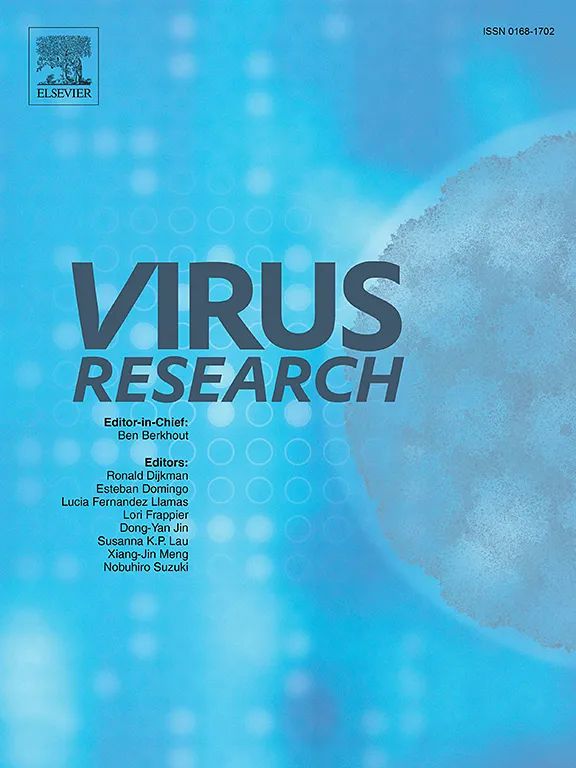中药是未来控制 PEDV 的理想选择
IF 2.7
4区 医学
Q3 VIROLOGY
引用次数: 0
摘要
猪流行性腹泻病毒(PEDV)是近期爆发的仔猪腹泻的主要病原体,给全球养猪业造成了巨大的经济损失。由于传统的疫苗策略无法为仔猪提供全面的保护,因此迫切需要开发安全、有效、经济的抗病毒药物。多年来,传统中药以其资源丰富、毒性低、耐药性小等优势被广泛应用于病毒性传染病的治疗。许多中草药单体、从这些传统药物中提取的单味中草药提取物和中草药配方在体外和/或体内通过针对多个部位和角度,包括抑制病毒生命周期、抗炎作用、增强宿主免疫反应、调节活性氧和细胞凋亡,表现出显著的抗 PEDV 作用。然而,迄今为止,还没有关于中药抗 PEDV 作用的综述。因此,本综述总结了当前的 PEDV 防治策略,并系统分析了中药抗 PEDV 的研究进展。此外,还讨论了未来的发展方向,包括纳米技术和人工智能与中药的结合。本综述将为今后的中药抗病毒研究提供有价值的参考。本文章由计算机程序翻译,如有差异,请以英文原文为准。
Traditional Chinese medicine as a promising choice for future control of PEDV
Porcine epidemic diarrhea virus (PEDV) is the major agent of the recent outbreaks of diarrhea in piglets, which has caused huge economic losses to the global swine industry. Since traditional vaccine strategies cannot provide complete protection for piglets, the development of safe, effective, and economical antiviral drugs is urgently needed. For many years, traditional Chinese medicines (TCMs) have been broadly applied for viral infectious diseases, exhibiting advantages such as abundant resources, lower toxicity, and minimal drug resistance. Many Chinese herbal monomers, single herbal extracts derived from these traditional drugs, and Chinese herbal recipes exhibit significant anti-PEDV effects in vitro and/or in vivo by targeting multiple sites and perspectives, including inhibition of the viral life cycle, anti-inflammation effects, enhancement of the host immune response, modulation of reactive oxygen species, and apoptosis. However, to date, no review has been published on the anti-PEDV effects of TCM. Therefore, this review summarizes the current control strategies for PEDV and systematically analyses the research progress of TCMs against PEDV. Furthermore, the future directions including the integration of nanotechnology and artificial intelligence with TCMs are also discussed. This review will provide a valuable reference for future studies on TCMs in antiviral research.
求助全文
通过发布文献求助,成功后即可免费获取论文全文。
去求助
来源期刊

Virus research
医学-病毒学
CiteScore
9.50
自引率
2.00%
发文量
239
审稿时长
43 days
期刊介绍:
Virus Research provides a means of fast publication for original papers on fundamental research in virology. Contributions on new developments concerning virus structure, replication, pathogenesis and evolution are encouraged. These include reports describing virus morphology, the function and antigenic analysis of virus structural components, virus genome structure and expression, analysis on virus replication processes, virus evolution in connection with antiviral interventions, effects of viruses on their host cells, particularly on the immune system, and the pathogenesis of virus infections, including oncogene activation and transduction.
 求助内容:
求助内容: 应助结果提醒方式:
应助结果提醒方式:


